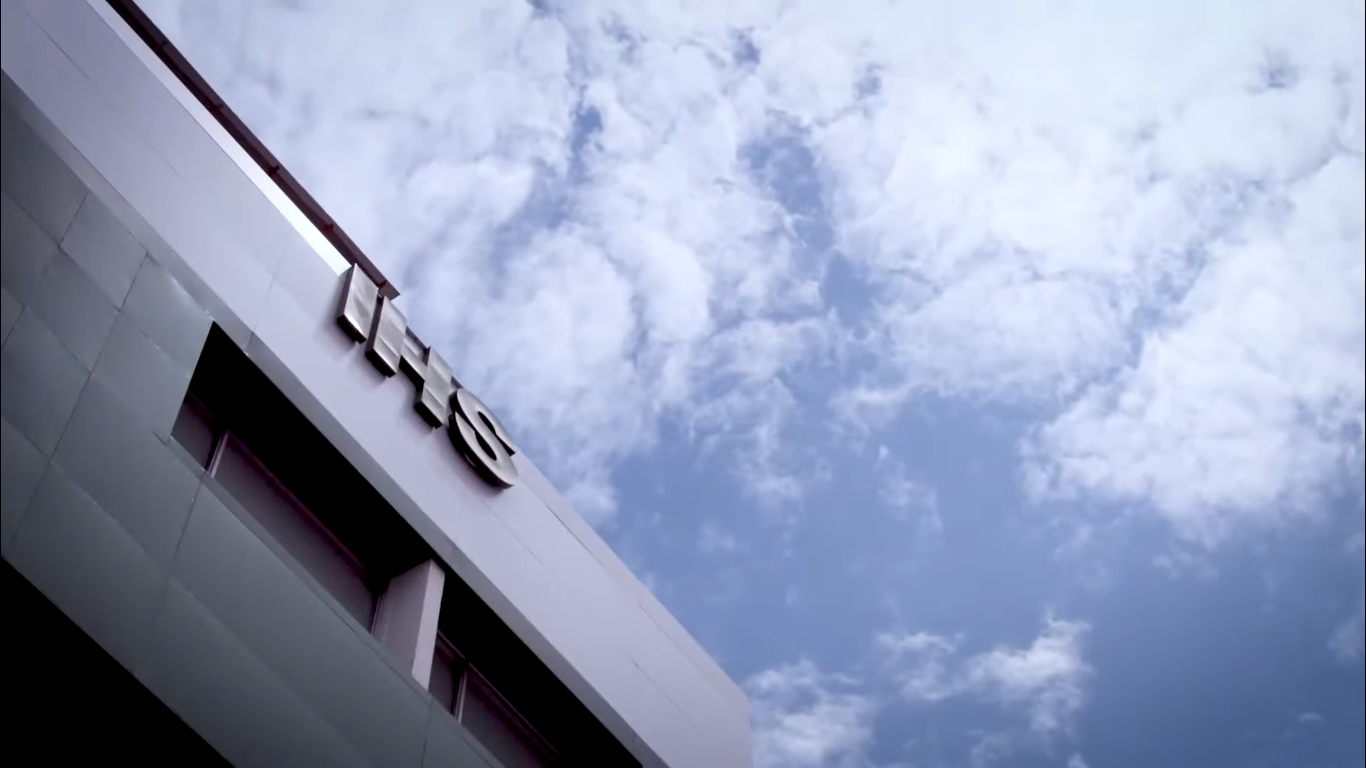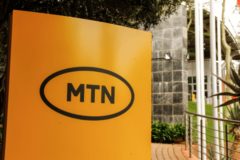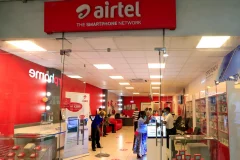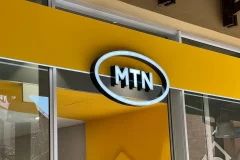The rapid rise to power of Africa’s tower industry is only a few years old, but cracks are already appearing.
Leading shareholders in Africa’s largest telecom tower company revolting. They are accusing the company of hiding information from the management, ignoring calls for a restructuring of the board, and not investing enough in infrastructure that will support the ambitious 5G rollout plan of MTN Group, the largest shareholder. Here’s everything you need to know about what is happening, why it is important and what it means for the future of Africa’s digital economy.
Let’s start with why it is important
Telecom towers are important infrastructure for Africa. It is a big multi-billion dollar industry raking in billions in revenue annually. The continent currently has between 160,000 to 170,000 per 2021 data from TowerXchange. But it is not nearly enough. India alone has nearly 750,000 towers.
Under pressure to roll out 5G infrastructure and manage the quality of its existing 4G network, IHS Tower’s biggest shareholder, MTN Group needs more infrastructure to support its ambition. Investors say IHS Towers is not doing enough to support this, is borrowing at high-interest rates and spending too much without explaining what it is spending the money on. A well-known US-activist investor says IHS Towers, which is incorporated in the Caymans Islands, one of the world’s largest financial centres and well-known tax haven, is hiding under the British territory’s rules to avoid disclosing details of company spending. The Cayman Islands is repeatedly criticised for its minimal disclosure rules, which allow companies to share limited information with their shareholders. Blackwells wants IHS to move its place of incorporation to Delaware or Maryland, in the US to align “with shareholder interests and from increased transparency.” But reporting from BusinessDay Nigeria indicates that the management of IHS fear that a hostile takeover is in the works for the company which was founded in Nigeria during the dawn of the country’s telecoms industry. Nigeria is also its biggest market by sales and revenue.
In a June 2023 letter, Blackwells Capital, the activist fund manager credited for catalysing the resignation of Peloton’s CEO last year, accused IHS Towers of having “no serious focus on enhancing value for the Company’s shareholders.” “The Company used more than $1.5 billion in cash last year for investing activities, but the line items on the Company’s published Statement of Cash Flows for such investing activities are not explained in any meaningful way to permit shareholders to understand these cash uses,” Jason Aintabi, Chief Investment Officer complained.
Since listing on the New York Stock Exchange in 2021, IHS Towers has lost half of its value. Following this, three large shareholders have since called out the company’s management and board over the company’s performance. Blackwells says it wrote privately to the IHS board last August and its chief investment officer spoke privately with IHS CEO, Sam Darwish, but its letter was met with inaction.
While revenue has gone up, profits have tanked and earnings per share have dwindled by an astonishing, -288.26%.
One year after it announced the acquisition of 5701 telecom towers from MTN Group and several days after an IHS annual general meeting, MTN Group released a statement complaining that it was unable to sell its non-voting shares and wanted to its stake in the company to be reflected in its voting power. MTN Group holds 26% of IHS Towers but only controls 20% of the voting share.
In response, IHS said, “The proposals requested to be put forward were not in the best interests of the company as a whole or to the collective shareholder base,” Bloomberg reported.
In return, MTN asked the board to call for an extraordinary meeting. Wendels, the second-largest shareholder in IHS Towers after MTN, backed MTN’s bid. It is worth noting that Wendels, has a representative on board.
IHS Towers finally published a terse response almost 3 weeks after the initial news. “The IHS Towers management team and Board of Directors have a continued track record of engaging with shareholders, listening carefully to their views and are focused on acting in the best interests of all shareholders. We note the recent comments made by certain of our shareholders and we continue engaging in shareholder dialogue,” the unsigned press release stated.
On Tuesday, July 11 2023, Wendels sued IHS for failing to notify all of its shareholders about proposals to reconstitute the board of IHS. It hopes to force a vote on the matter. MTN Group, Wendels and Blackwells together, account for more than 45% of IHS Tower’s equity.
How IHS got here
Telecoms towers and the accompanying infrastructure, are expensive to build and maintain. In the early days of GSM mobile networks, telecom companies had to finance and build these towers quickly in order to cover more areas and offer better services. But it saddled them with debt and made them unattractive. Separating their assets from their operation business was a relatively easy way to solve this problem.
This PropCo (short for property co)-OpCo (short for Operating Company) model is not new. Real estate assets are better rated for lending purposes than operating businesses. And so tend to better attract the loans they need to put up their buildings. It is thus easier for a separate tower unit to raise debt to expand coverage. Some telcos run these tower units under a holding company. Some like MTN in 2021, sold the towers to dedicated tower management companies like IHS Towers.
Since the mid-2010s, IHS Towers, Eaton Towers, Helios Towers Africa and American Tower Corporation were fighters in a fierce competition for telecom masts that were being sold by leading telcos like Vodacom, Vodafone, Etisalat, Orange, MTN and Airtel. As the telcos divested from infrastructure to focus on service delivery.
The brand-name hospitality industry works in much the same way. Under this model, the property company owns the real estate and a hotel brand like Marriot runs the hotel day-to-day. In this case, the tower company owns the base stations and the mobile carriers lease the towers (i.e. pay rent) to run the actual business of providing telecom services. Both the tower company and the mobile carrier can be owned by the same parent company. MTN operated like this until they sold their tower units to IHS. Or they could be completely separated and run by different companies with different ownership—the way it is now structured.
African telcos are alone in this, in the last decade, it has become fairly standard practice in the industry to sell tower assets. Of the six biggest telcos in Europe (BT, Deutsche Telekom, Orange, Telecom Italia, Telefónica and Vodafone), only Orange fully controls its towers.
The tussle between IHS and shareholders like MTN brings to the fore the puzzle of why telcos needed to sell their assets in the first place. Recently Telkom Kenya was shut out by American Towers after it failed to pay for services. The shutout disconnected millions of Telkom Kenya users across the country. Besides this, rents paid on tower leases are rising as tower companies battle a host of challenges and seek to extract even more profit from their assets.
Christel Heydemann, CEO of Orange was once quoted in the Financial Times, “When you see companies selling their towers [or] using financial vehicles to continue to invest in infrastructure there is something that is, maybe not wrong, but something weird going on in the market.” The shareholder drama in IHS is the latest example of what could go wrong when a telco sells operation-critical assets to manage its debt profile and improve its financial position.
Implications of the squabble
Outside of MTN Group and Wendel, the remaining top 8 shares of IHS Towers, which include IHS CEO Sam Darwish, a relative, Mohamad Darwish (with shareholdings of 3.49% and 0.32% respectively) and Goldman Sachs, collectively represent 24.76% of IHS Towers. They have remained on the sidelines of IHS’s bout with MTN, Wendel and Blackwells.
But the latest escalation of this infighting might put some strain on IHS management and board who earlier this year, were reportedly considering several opportunities to buy additional tower units from South Africa’s Telkom SA SOC. IHS was also reportedly considering buying the African towers owned by French telco, Orange.
Quickly buying either would consolidate IHS’s position as the leading tower company in Africa and might douse shareholder concerns that it is not aggressive enough to support. But the pressure could go either way. IHS has been accused of poorly accounted spending. So it could decide to abandon the talks which were first reported in February 2023 and focus on settling its shareholder squabble.
Telecoms is the backbone of Africa’s digital economy. The continent has scored important goals in expanding access, but there is still a lot to do. Only 22% of the total population in Sub-Saharan Africa used mobile internet in 2021, per data from the GSM Association. While 83% of the continent is now covered by mobile broadband, about 250 million Africans remain uncovered. The usage of mobile broadband services is even worse. The usage gap stood at 61% in 2021 (or 44% of adults aged 18 and above). An aligned telecom sector undivided by infighting and unrestricted by lack of performance is critical to expanding access and supporting the usage of telecom services. Especially as the continent’s digital economy begins to mature.





















